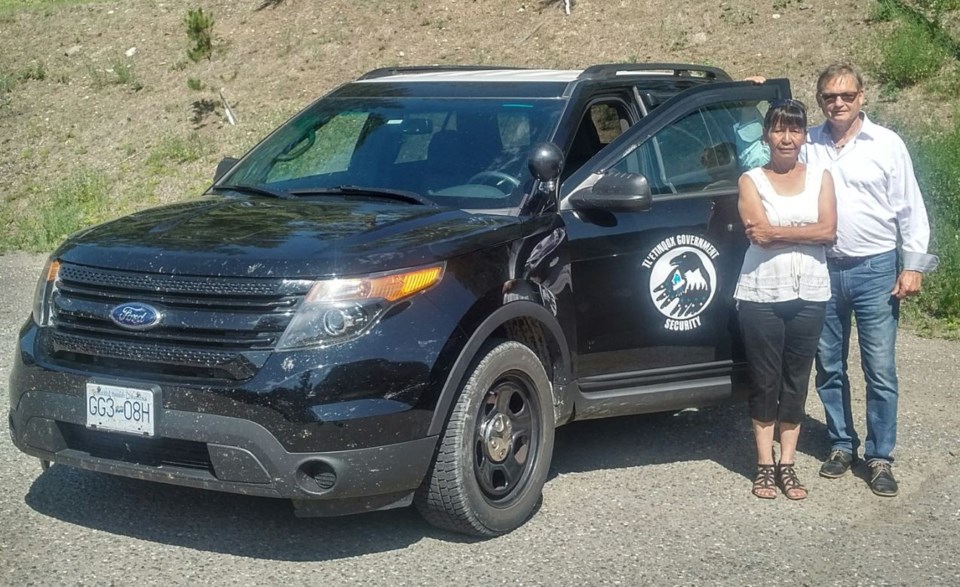The City of New Westminster is continuing to forge stronger ties with the Tsilhqot'in First Nation.
The city recently donated and delivered two New Westminster Police Department vehicles to the Tŝilhqot'in First Nation. While the vehicles have come to the end of their life for “rapid response, all day long, speeding and lights and sirens” requirements in the city, Coun. Chuck Puchmayr said they still have life in them as a more casual use.
“It’s absolutely perfect for a small community,” he said. “The lights and sirens have come out. The ballistic panels have come out. The prisoner cage has come out.”
Puchmayr said the vehicles are “desperately” needed by the Tŝilhqot'in First Nation. One of the Tŝilhqot'in bands will use one of the police cars to patrol its lands as part of a new ranger program, while the Tl’etinqox First Nation will use the other vehicle for a community security program in the Anaham community.
“It was overwhelming, especially when they first saw the vehicles,” Puchmayr said of the response to the delivery of the police cars. “They were so impressed.”
Puchmayr said the New West police department replaces vehicles in its fleet every few years, and these vehicles were due for replacement. With the city moving toward a greener fleet that consists of duel-fuel vehicles that use both gasoline and propane, he said these cars were among the last of the gasoline-only vehicles.
Last summer, the City of New Westminster donated a 15-year-old fire truck that was being taken out of service to the Tl’etinqox First Nation, rather than disposing of the truck at auction. The truck was quickly put to work as forest fires ravaged the area last summer.
Puchmayr is currently working a plan to provide an emergency operations centre (EOC) seminar for the Tl’etinqox First Nation, as a way of providing a better understanding of what’s required in emergency situations, helping community members respond to fires and activating an emergency operations centre if necessary.
The Tŝilhqot'in National Government, established in 1989, represents the six Tŝilhqot'in communities of Tl'etinqox, ʔEsdilagh, Yuneŝit'in, Tŝi Deldel, Tl'esqox and Xeni Gwet'in.
Puchmayr raised the issue of stronger ties with the Tŝilhqot'in National Government through the city’s international relations committee and believes it could be mutually beneficial on a number of fronts. While the city will continue to have sister city relationships with cities in Asia, Puchmayr believes this is an opportunity to do something meaningful within British Columbia.
“We identified that this clearly meets the terms of reference of our international relations committee, our international relations protocol,” he said. “They are a nation. They are a recognized nation. They are a government of their own nation so it fits right in.”



